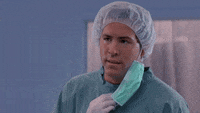I just judge people individually. I know a lot of IDIOT doctors I work with, that I wouldn't go to for anything, as well as idiot CNAs (that wipe patients faces with bleach), idiot RNs (Mostly floor, clinic, or nursing home- I'm always amazed when I visit my grandma in the nursing home and realize how little the RNs there know...), etc.
But I do know some kick ass midlevels that I would see unless it was something life threatening.
We have ATTENDINGS at my hospital (mostly HMS) that act like they don't know what to do and are expecting us RNs to guide them. I had one a month or so back that we called about a patient decompensating, and he just stared at the patient, seemingly lost. And myself and a NEW nurse were like, "Do you think maybe we can do x,y,z etc" and he was basically doing what we asked him to as we asked. This is AFTER the new nurse called him saying "Hey she is in afib with RVR rate around 150, gets up to 170 at times" and he said "Okay keep monitoring her" and didn't give him an order for any PRNS, and I called him back and said "we need some metoprolol or Cardizem push, and you need to come look at this patient"
The patient ended up going to the unit an hour or so later.
Hospital medicine seems to have the greatest spread of physician skill. We have amazing ones and I love to pick their brain, and some that seem like med students. I don't understand it.
I looked up this doc and he graduated from "Medical University of the Americas" in 2013, so he is fairly new but still.

